The energy crisis is one of the world's most significant issues today. Energy is essential and a critical input in the economy's growth. Without it, we will be facing a bleak future.
There are several benefits of energy. First, it gives us light amidst the darkness and makes society work. With light, we can do our homework, light up the dark streets at night, and interact with people.
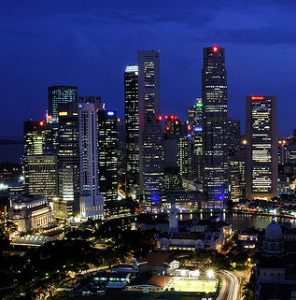
Second, it helps in the processes of industrialization in our country. Factories won't work without electricity, and if factories shut down, people will starve. The things we use today require energy.
For example, our clothes require 3 gallons of gasoline to be finished inside the factories. The products these establishments create need to be shipped in trucks, trains, airplanes, or ships, which need fuel to move. Even food production also requires tons of energy.
Everything we do needs energy. Our homes, schools, malls, hospitals, and offices require energy.
Today, one of the most controversial issues is the sustainable energy source. Our resources are depleting, and the government is doing its best to find possible alternatives for the community.
Energy crisis at the world
 We are experiencing an energy crisis due to limited natural resources and rising demand to power our society. While these resources are produced naturally, replenishing them will take thousands of years.
We are experiencing an energy crisis due to limited natural resources and rising demand to power our society. While these resources are produced naturally, replenishing them will take thousands of years.
The energy crisis is ongoing, and despite the government's efforts, it is getting worse. Lots of factors cause the energy crisis.
For one, it is because of overconsumption. People are using and wasting too many resources that they don't need. Indeed, the public needs to be educated about the implications of wasting energy.
It is also linked to the growing population of the world. Hundreds of babies are born every day, and there's a steady increase in energy consumption.
The crisis is also caused by poor infrastructures that supply energy in the communities. Sometimes, leakages and frequent breakdowns can result in a poor distribution system.
Lastly, the energy crisis is caused by various factors, such as a military coup, political clashes, strikes, and tax hikes. We need to solve the issue of politics in our government to find a sustainable solution to this crisis.
Solution to the energy crisis
There are both complex and simple solutions to the world's problem of the energy crisis.
According to experts, the government must explore and invest in renewable energy resources. Most of the power we use today is from non-renewable energy, such as coal and fuel.
Our problems in energy will only be solved if we give priority to the exploration of renewable energy.

It is also proper to be energy-efficient. We must use products that can save energy. If we travel a short distance, it will be best to use bicycles or walk. If we plan to renovate our homes, we must use LED bulbs for our lamps. These products are brighter, safer to use, and economical.
It is also advisable to design our homes with proper ventilation so there will be no need to buy expensive appliances to have fresh air for our family.
Solar panels can also minimize our dependence on purchasing electricity from big companies.
Unplugging from the grid is a simple solution to the growing energy crisis. If all homes and offices try to reduce their energy usage, there will be no energy crisis, especially in first-world countries.
Let's find out more below.
How to unplug from the grid
Home Power magazine says that there were around 180,000 homes that supplied their power in 2006.
In addition, 27,000 homes use wind and solar energy to offset their grid connection.
Going off the grid is a good way of being environment-friendly and eliminating the frustrating monthly bills. Here are some tips on how to do it:
Going solar
Solar technology has been used for industrial purposes since the 1950s. In the early 2000s, solar panels were introduced for domestic purposes.
According to the International Energy Agency, solar power could be the largest source of electricity by 2050.
Since 2008, hundreds of families in the United States have switched to using solar energy to power their homes. In addition, the cost of buying and installing solar power systems has dropped to about 50%.
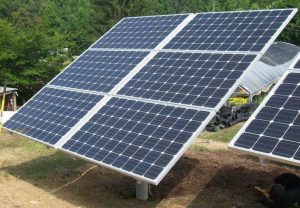
This technology works by harnessing the sun and turning it into electricity. It requires using solar panels that we sometimes see in the fields or rooftops. It also uses inverters, which are the equipment that converts the DC power from the solar panels to AC power for the grid. When the sun shines on the panels, the cells absorb photons, creating an electric field that allows electricity to flow. As long as the sun shines, solar panels will work.
You can install it on your roof or ask neighbors to share the costs of building solar panels.
The amount of money and energy you can save by going solar depends on your usage and the system that you have installed. Using solar panels also reduces the number of pollutants, such as carbon, emitted to the environment. This will then result from cleaning water and air.
Success Stories: Solar energy
Kathleen Watson of Buckeye, Arizona, switched to solar energy in 2011. She paid the system at $10,258 by Home equity line of credit.
Watson says she used to pay $75 monthly for her bills, but now she pays $10 only for connection fees. Her solar power system generates 100% of her electricity. She has been saving money and being environment-friendly for almost six years.
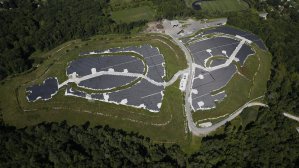
Meanwhile, John and Mami Humann of Mission Viejo, California, paid $17,668 cash to install the solar power system on their home in 2014.
The couple is both financial managers, and they have learned that the benefits of going solar outweigh the disadvantages. They now save about $233 per month for their electric bills.
Apart from successful homeowners, there's a city that Solar Panels power. It's in North Adams, Massachusetts. The city, with about 13,000 residents, is now 100% solar. Borrego Solar constructed the project, and it features a 3.5-megawatt solar array.
Using wind turbines
If you live in a windy area, wind turbines can generate green power for you. Small wind turbines are electric generators that utilize the wind to create clean and free power for homes, offices, farms, and other establishments.

Wind energy has been used since the time of Ancient Chinese. Windmills were created to pump water in China and grind grains in the Middle East. Throughout the 20th century, wind turbines were introduced for domestic purposes.
Professionals at your home can set up this technology. On average, wind turbines measure about 80 feet, generating a 5-kilowatt capacity to support energy requirements at home. It costs around $10,000 to $70,000, depending on the installation expenses. The wind can turn the blades and spin the shaft, connecting to a generator to store and make electricity. Wind turbines can have a horizontal axis and a vertical axis.
Regarding success stories on the use of wind energy, the University of Pennsylvania has the number one spot for revolutionizing energy usage in US universities.
Meanwhile, Rock Port, Missouri, has produced 123% of the electricity demand using wind power. The neighboring provinces can also benefit from the surplus. On the other hand, Spain and Norway are some of the popular countries addressing their power issues using wind energy.
Off the city water and sewer lines
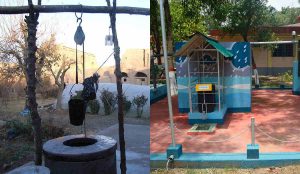
There are various options when you decide to live off the grid for your water supply. You can dig a well and build a rainwater harvesting system.
Rainwater harvesting is catching the rain and storing it for different domestic purposes. It was started in the 3rd BC in Pakistan to water the farms. The system includes catchments, coarse mesh, gutters, conduits, and filters. The filtered water can be used for drinking, bathing, washing clothes, cleaning the house, and other purposes.
Rainwater is safe, sustainable, and accessible. You'll need minimal energy to make the system work. In addition, collecting and storing rainwater can reduce the costs of buying expensive water for your family.
Countries such as China, Brazil, Australia, Canada, and some parts of the United States utilize this technology for their communities. India has also started the rainwater harvesting (RWH) scheme to supply water in some parts, such as Chennai.
The second option for your water source is drilling a water well. Groundwater is the water that is soaked in the soil and other openings of rocks and sand. You can harvest it by making holes in the ground and building wells. The wells are lined with PVC pipes and protected by a screen to prevent the sand and other particles from entering the pipes.
The water from the well can be pushed above by pumps or pressure tanks. Water from wells is uncontaminated, doesn't deplete quickly, and requires minimal energy. Several countries in all parts of the world have different success stories using water wells. It is an old technique that is applicable even today.
Living the 'off the grid' lifestyle
Aside from installing power and water sources, switching to an 'off-the-grid lifestyle is also advisable. This means you must cut your energy consumption as much as possible.

This will include minimizing online activities on your tablet, smartphone, and laptop.
Please turn off the appliances when it's not in use. Open your home's doors and windows if you think your room's ventilation is not enough. Minimize using an air conditioning unit and let fresh air enter your room. Switch to walking or using bicycles when traveling.
You can also opt to use mass transportation such as buses and trains rather than bringing your car when traveling to places. This will reduce your carbon footprint. Learn to reuse and recycle the things you use to reduce waste.
You can redesign clothes, bags, shoes, and accessories to make them fashionable rather than throwing them. You can turn the biodegradable products in your kitchen into fertilizers for your plants.
When you familiarize yourself with these simple actions, your life will change.
'Off the grid' pros
There are advantages of unplugging from the grid. For one, living an off-the-grid lifestyle will make you independent of state policies. The laws on off-the-grid resources are lax, and you can have the freedom to install one in your home.
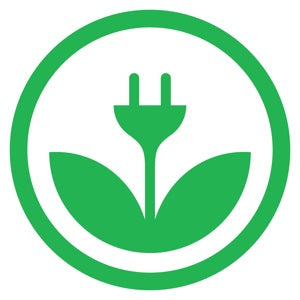
Second, installation is affordable, and credit loans are provided for homeowners.
Third, with the grid system, you have the freedom to expand it anytime that you want. You can upgrade it and bring more energy supplies for your home if you have extra savings in your account.
Fourth, living in the off-grid system will teach you to use energy efficiently. This will open your eyes to the wise spending of electricity and water inside your homes.
Lastly, switching to the off-grid system will give you satisfaction and peace of mind. It will provide you with a long-term solution to your expensive monthly bills from big companies.
'Off the grid' cons
Meanwhile, living off the grid will require a special kind of maintenance. Sometimes, the maintenance will need you to spend money.
In addition, you will do all the work in taking care of the system, such as checking the batteries, cleaning up the filters, and ensuring the blades are working. You must ask for professional help to avoid daily equipment checking alone.
Living off-grid can be satisfying, but it's also a big responsibility. You must also be willing to flex your electrical activities with weather changes.
Sometimes, the weather is unpredictable. If you live in the city and are impatient with the traffic, the same is true when you wait for the sun or wind to energize your generator.
Conclusion
Most people nowadays want to unplug from the grid to save money, be environment-friendly, and have a sustainable energy source for their families. It has been prevalent for many years, and it will survive in the years to come.
There are precautions to take when switching to the off-grid lifestyle. Proper research is necessary to make it successful in the end. It combines good education, the right mindset, and advanced technology.




Leave a comment
All comments are moderated before being published.
This site is protected by reCAPTCHA and the Google Privacy Policy and Terms of Service apply.